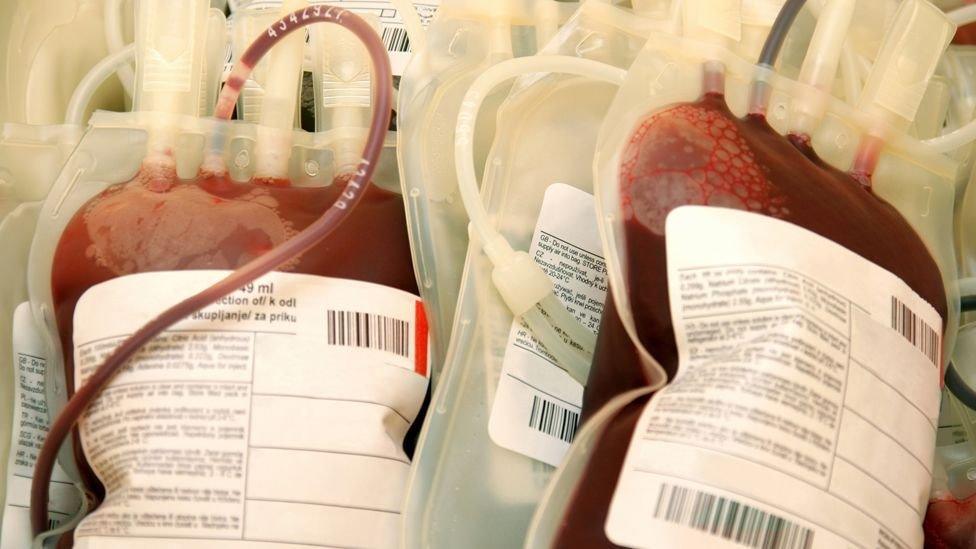Infected blood scandal: Malcolm Chisholm told to 'tough it out'
- Published
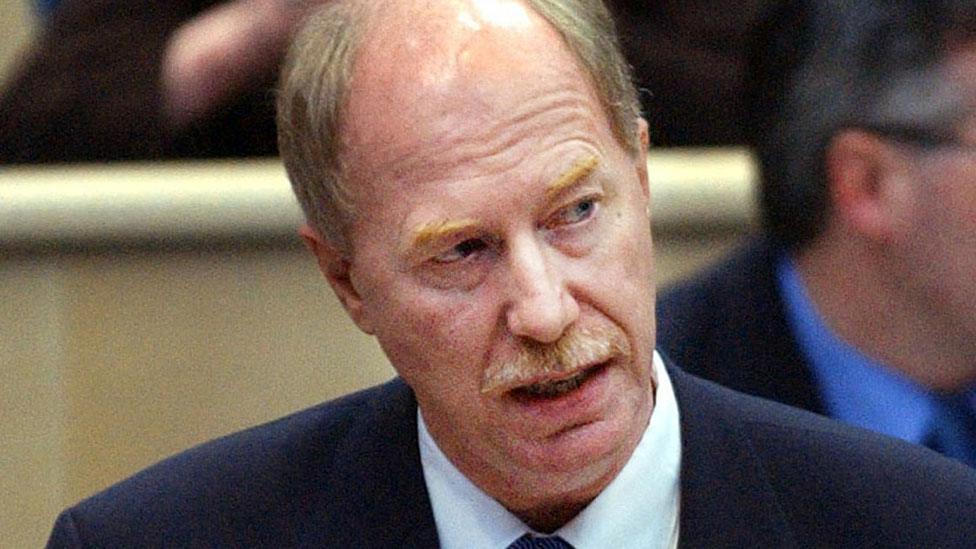
Former Health Secretary Malcolm Chisholm was told that making payments to people with Hepatitis C would be a "grave mistake"
Scotland's former health minister was told by his Westminster counterpart to "tough it out" amid calls to compensate victims of the infected blood scandal, an inquiry has heard.
Malcolm Chisholm was warned in 2002 that handing payments to people with Hepatitis C would be a "grave mistake".
About 3,000 Scots contracted the virus in the 1970s and 1980s through contaminated blood products.
Survivors did not receive financial support until 2004.
About 30,000 people across the UK were infected with either HIV or Hepatitis C in what has been described as the worst treatment disaster in the history of the NHS.
The UK Infected Blood Inquiry is investigating the scandal, external. It is hearing this week from former Scottish political leaders and a former high-ranking civil servant.
About 80 people in Scotland are believed to have contracted HIV through tainted blood products. They started to receive financial support in 1988 as part of a UK-wide scheme.
For years afterwards government ministers resisted calls from the Haemophilia Society and others to extend such support to people who contracted Hepatitis C.
An expert group set up by the Scottish Executive recommended that all such victims be awarded £10,000, with up to £90,000 more available to those suffering serious and long-term effects.
The Infected Blood Inquiry heard that by 2002 Mr Chisholm had decided that the worst-affected Hepatitis C patients should be given financial support.
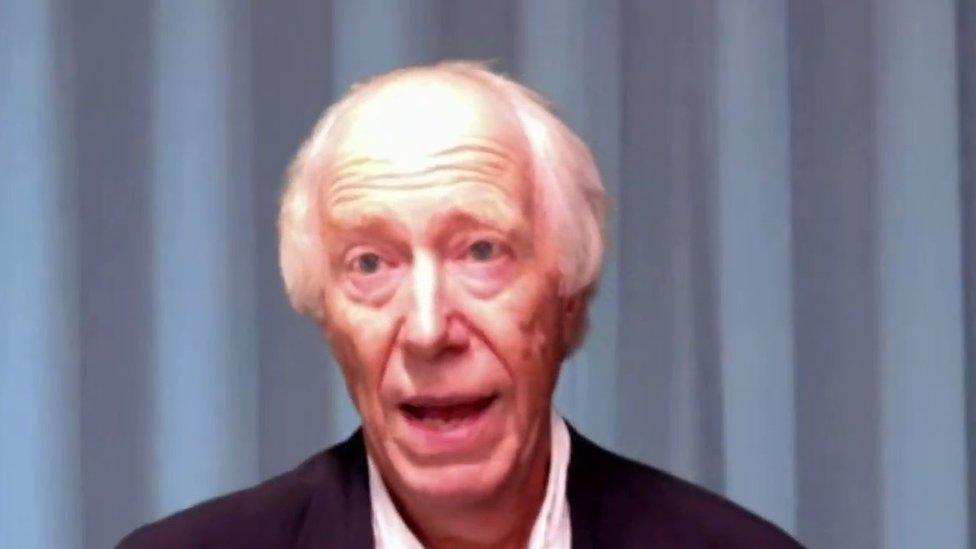
Mr Chisholm has given evidence to the UK Infected Blood Inquiry.
An email sent in November 2002 from the private secretary of then UK Health Secretary Alan Milburn reports on a phone conversation he had with Mr Chisholm.
It states that Mr Chisholm "feels he has to offer something, probably around payments to people once they become seriously ill".
Mr Milburn "was very clear that he thought this would be a grave mistake", according to the email. The Labour minister is said to have warned the UK would be financially "scuppered and on a slippery slope to payments running into the millions across the UK".
Mr Chisholm, giving evidence to the inquiry on Thursday, described the email as an "accurate report".
He said he had to consider the UK government's opinion on the matter due to doubts that the payments would fall within the remit of the Scottish Executive.
The former health minister said: "While we hoped it was a devolved matter we couldn't be absolutely sure about it. And indeed the following month we changed the nature of our proposals because we were advised lump-sum payments [instead of monthly payments] were more likely to be regarded as within devolved powers."
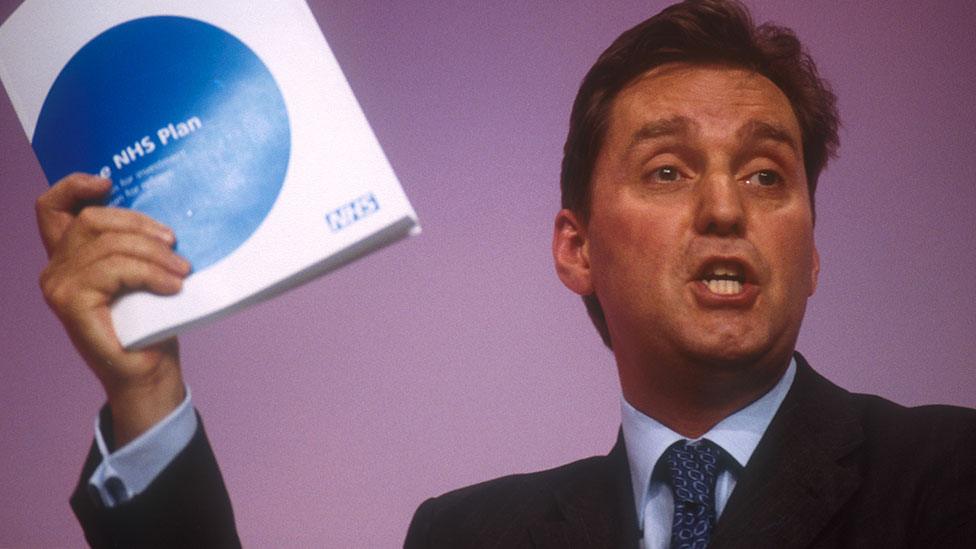
The issue was discussed with Alan Milburn, who was UK health secretary in 2002.
The Scottish Executive ultimately proposed an ex gratia payment scheme which would have paid up to £50,000 to people infected with Hepatitis C.
However, a UK-wide scheme, the Skipton Fund, was set up instead. It awarded £20,000 to eligible applicants with chronic Hepatitis C and a further £25,000 to those who developed more serious symptoms or conditions.
The fund ran until 2017. Scottish victims now receive support from another Scottish government scheme.
The inquiry, before Sir Brian Langstaff, continues.
Related topics
- Published24 September 2018
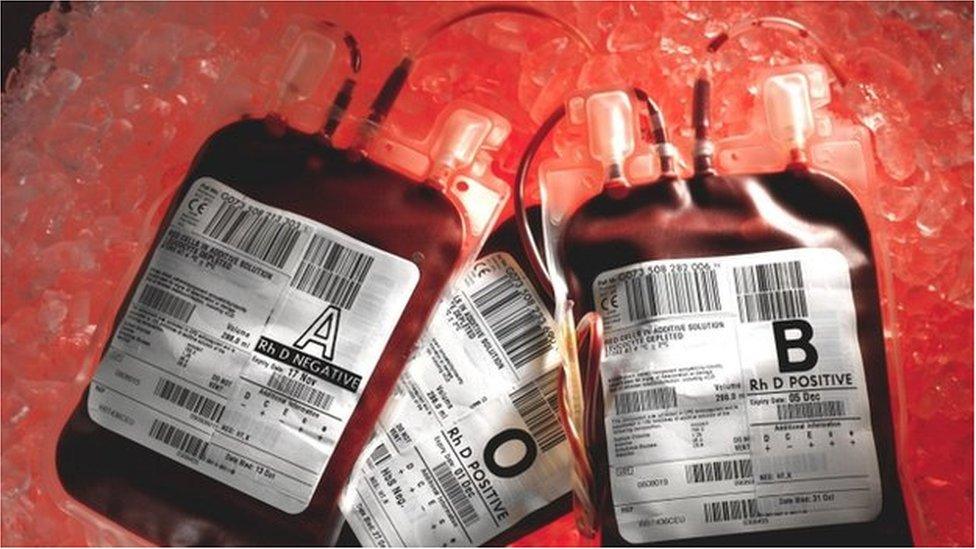
- Published18 May 2021
